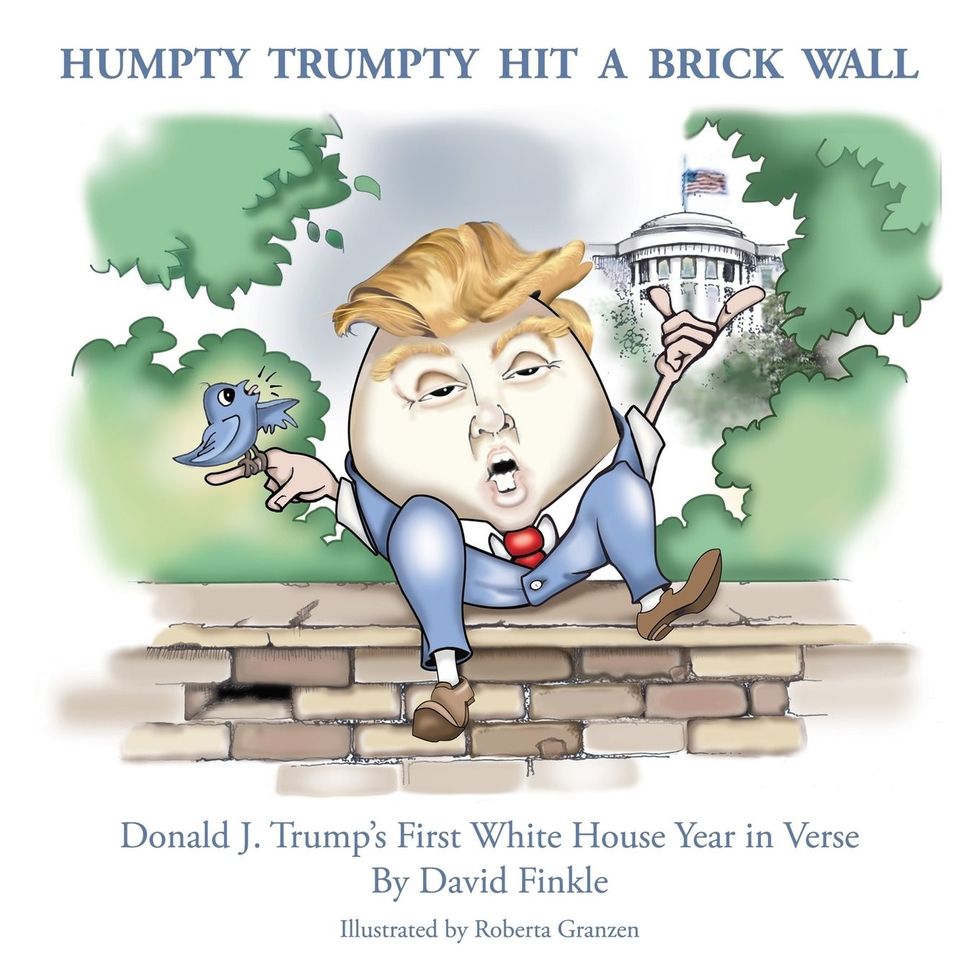Media Beat: January 07, 2021
Canadians have been glued to American cable news shows for months.

By David Farrell
Canadians have been glued to American cable news shows for months. My friends tell me more about the goings-on in Washington DC, Georgia, Tallahassee and the two federal party leaders than they ever tell me about what’s going on in our own backyard. We have come to know more about the GOP and the US political system than most of us know about our own system of government. Heck, they don’t even teach civics in high school anymore. What has struck me in this sometimes-obsessive attention to the minutiae of electioneering in the US is how so many of us see it through a prism that filters everything into good and bad, black and white, Trump versus Biden, the GOP versus the Democrats. My uncomfortable truth with so much in life is to ignore the morality play and try to understand the motivations driving both sides in a dispute.
Don’t get me wrong, Humpty Trumpty is an odious, self-aggrandizing cretin, but his career in so many ways reflects the dark side of the American dream, and it is my belief that corporate America holds the power in the US elections and legislatures. It’s this sense of hopelessness that sparked the dreams of so many voters to the south when the medicine man promised “to make America great again”. Like him or loathe him, Trump promised the downtrodden emancipation from corporate avarice. He promised them jobs, security and a return to another time when America wielded moral authority.
The upheaval on Capitol Hill yesterday has been described as shocking, but it was inevitable and the signals that an uprising was in the air have been long and large. Some have predicted a civil war. Yes or no, the new administration is taking over a divided country that owes trillions to its adversaries and lost friends, is shadowed by a pandemic that is now out of control, and stick-handled by marionettes that lack scruples and often hold no electoral position. America’s so-called democracy is on a respirator, and its insular view of the world has allowed its enemies to become benevolent dictators across Central and South America, Africa and India. Having the latest smartphone is no longer important in this new world. Clean water, fresh air and a fresh take on sustainability for life on earth have become the new premium brands.
What follows are a few news features that pull back the scrim on the face of democracy in America today. Joe Biden and his team have much to change if America and the world itself can be brought back from the brink of self-destruction.
It's a conversation that goes on daily across America, much of Canada and many other places in the world, and it is one that media need engage with, and offer leadership on by affecting constructive change and offering hope for a new world and a better world for our children and our children's children.--David Farrell
– Illustration courtesy of Roberta Granzen, illustrator for Humpty Trumpty Hit A Brick Wall: Donald J. Trump’s First White House Year in Verse by David Finkle.
The billionaire winners and losers of the 2020 Presidential Election
There are obvious winners (notably Biden’s biggest backers) and obvious losers (like the billionaire 45th president and his donors). Then there are billionaires Tom Steyer and Michael Bloomberg, who committed huge sums of money to help get Biden elected but also frittered away hoards of cash on their own failed presidential campaigns. Steyer spent $342 million on his White House bid; Bloomberg spent more than $1.1 billion.
Here are some of the most notable billionaire winners and losers of the 2020 presidential election:
Dustin Moskovitz: Mark Zuckerberg’s college roommate, the Facebook and Asana cofounder spent big to fight Trump. He gave more than $800,000 to Biden and made a $20 million-plus donation to Future Forward, a super-PAC that shelled out $100 million to fund a last-minute TV ad blitz attacking Trump. “It’s raining in San Francisco, which is actually just perfect,” Moskovitz tweeted the day after Biden was named the victor. “5 star weekend.” … – Chase Peterson-Withorn, Forbes
The cost of fighting the count
Awkward questions for the companies that donated to senators planning to challenge the 2020 election results.
In a new ad, the Lincoln Project, an anti-Trump Republican group, accused Mr. Cruz and Mr. Hawley — as well as Senators Tom Cotton of Arkansas and Rand Paul of Kentucky, who have promoted the president’s election fraud contentions but haven’t committed to the certification challenge — of attempting to suppress millions of votes, and called out “the corporate America titans who are funding them,” naming AT&T, Charles Schwab and Citigroup. If that creates reputational issues, companies may think twice about donations to challengers in 2022 — and beyond. – Andrew Ross Sorkin, Jason Karaian, Michael J. de la Merced, Lauren Hirsch & Ephrat Livni, The New York Times
2020 election cost $14 billion, blowing away spending records
The 2020 election is more than twice as expensive as the runner up, the 2016 election. In fact, this year’s election will see more spending than the previous two presidential election cycles combined.
The massive numbers are headlined by unprecedented spending in the presidential contest, which is expected to see $6.6 billion in total spending alone. That’s up from around $2.4 billion in the 2016 race.
Democratic presidential nominee Joe Biden will be the first candidate in history to raise $1 billion from donors. His campaign brought in a record-breaking $938 million through Oct. 14, riding Democrats’ enthusiasm to defeat Trump. President Donald Trump raised $596 million, which would be a strong fundraising effort if not for Biden’s immense haul. – OpenSecrets.org
Georgia’s billion-dollar bonfire
Here are some of the ways that $443,210,038.26 could have been spent in the state of Georgia in 2020. Each time someone filed for unemployment—4.2 million claims have been processed since March, more than the past nine years combined—that person could have received a $100 bill. Roughly 100,000 of the state’s 1.4 million residents who are living through a global pandemic without health insurance could have purchased plans through the Affordable Care Act marketplace. Every freshman and sophomore at Spelman and Morehouse, two historically Black colleges in Atlanta known for producing political leaders, could have been awarded four-year full rides. – Emma Green, The Atlantic
America is not a democracy
For years, the residents of Oxford, Massachusetts, seethed with anger at the company that controlled the local water supply. The company, locals complained, charged inflated prices and provided terrible service. But unless the town’s residents wanted to get by without running water, they had to pay up, again and again.
The people of Oxford resolved to buy the company out. At a town meeting in the local high-school auditorium, an overwhelming majority of residents voted to raise the millions of dollars that would be required for the purchase. It took years, but in May 2014, the deal was nearly done: One last vote stood between the small town and its long-awaited goal.
The company, however, was not going down without a fight. It mounted a campaign against the buyout. On the day of the crucial vote, the high-school auditorium swelled to capacity. Locals who had toiled on the issue for years noticed many newcomers—residents who hadn’t showed up to previous town meetings about the buyout. When the vote was called, the measure failed—the company, called Aquarion, would remain the town’s water supplier. Supporters of the buyout mounted a last-ditch effort to take a second vote, but before it could be organized, a lobbyist for Aquarion pulled a fire alarm. The building had to be evacuated, and the meeting adjourned. Aquarion retains control of Oxford’s water system to this day. – Yascha Mounk, The Atlantic
The last time Democracy almost died
The last time democracy nearly died all over the world and almost all at once, Americans argued about it, and then they tried to fix it. “The future of democracy is topic number one in the animated discussion going on all over America,” a contributor to the New York Times wrote in 1937. “In the Legislatures, over the radio, at the luncheon table, in the drawing rooms, at meetings of forums and in all kinds of groups of citizens everywhere, people are talking about the democratic way of life.” People bickered and people hollered, and they also made rules. “You are a liar!” one guy shouted from the audience during a political debate heard on the radio by ten million Americans, from Missoula to Tallahassee. “Now, now, we don’t allow that,” the moderator said, calmly, and asked him to leave. – Jill Lepore, The New Yorker

















